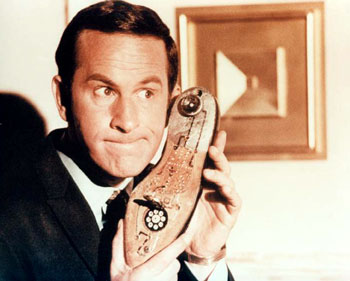the other mike
Diamond Member
"When Europeans send their people --- they're not sending you. They're bringing diseases... they're bringing slavery... they're papists.... and some I assume are good people".
Follow along with the video below to see how to install our site as a web app on your home screen.

Note: This feature currently requires accessing the site using the built-in Safari browser.
"When Europeans send their people --- they're not sending you. They're bringing diseases... they're bringing slavery... they're papists.... and some I assume are good people".
If your uncle was a woman, he'd be your aunt!If Al Gore had been president, you would have gone along with whatever schemes he cooked up so don't even pretend you're above the fray, fake negro.

It was a fad, like a pet rock.ghey
Whats the sense of it?
The NSA was spying on us before 9/11, during Slick Willy's reign, in case anyone forgot.You idiots already opened that door and left it open the moment you supported Shrub II & Co. in their grab for power, in the guise of fighting Mooslims, that allowed them to legally spy on us from then on to forever more.
You should have cried then.
That ship has sailed moron.
You self-professed Conservatives are so damn dumb, you're a danger to life on earth.
Peeping Tom !
I do. I like eavesdropping.

The NSA was spying on us before 9/11, during Slick Willy's reign, in case anyone forgot.You idiots already opened that door and left it open the moment you supported Shrub II & Co. in their grab for power, in the guise of fighting Mooslims, that allowed them to legally spy on us from then on to forever more.
You should have cried then.
That ship has sailed moron.
You self-professed Conservatives are so damn dumb, you're a danger to life on earth.
Go on...The NSA was spying on us before 9/11, during Slick Willy's reign, in case anyone forgot.
America was totally sleepwalking in the 80's and 90's. ( and it's worse now) By the time 9/11 happened we basically became shell-shocked and caught off guard completely by it all. But there is a civil war happening behind closed doors on the Hill as we speak between the Constitution side and the dark side, deep state, shadow government or whatever you choose to call it.Clinton and the media took advantage of American ignorance and patriotism to justify his wars which also happened to kill a lot of Muslims. Not too different from GWB.
Go on...The NSA was spying on us before 9/11, during Slick Willy's reign, in case anyone forgot.
How were they spying on us at that time?
The NSA was spying on us before 9/11, during Slick Willy's reign, in case anyone forgot.
You could start here...Go on...
How were they spying on us at that time?
I don't have one either, but not because I'm afraid it will spy on me.You guys got guilty consciences?
Funny, I kept hearing the same crowd whining "if you have nothing to hide you have nothing to worry about".
I've never had one of these devices but apparently what it does is affixes the shoe to the other foot.
How? All you gotta do is not buy one.Classic attack on privacy.You guys got guilty consciences?
Funny, I kept hearing the same crowd whining "if you have nothing to hide you have nothing to worry about".
I've never had one of these devices but apparently what it does is affixes the shoe to the other foot.
Fail deflectionHow? All you gotta do is not buy one.Classic attack on privacy.You guys got guilty consciences?
Funny, I kept hearing the same crowd whining "if you have nothing to hide you have nothing to worry about".
I've never had one of these devices but apparently what it does is affixes the shoe to the other foot.
How is that a deflection?Fail deflectionHow? All you gotta do is not buy one.Classic attack on privacy.You guys got guilty consciences?
Funny, I kept hearing the same crowd whining "if you have nothing to hide you have nothing to worry about".
I've never had one of these devices but apparently what it does is affixes the shoe to the other foot.


How is that a deflection?
It speaks directly to the topic.
Is it just because you can't support your position without looking foolish now that it has been pointed out?